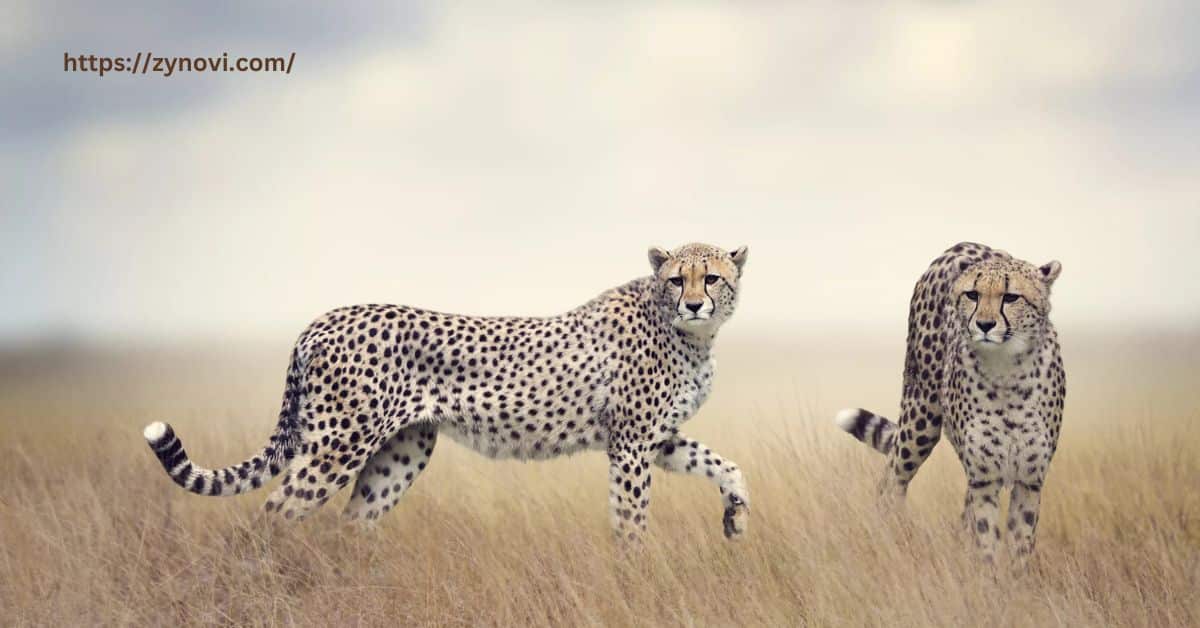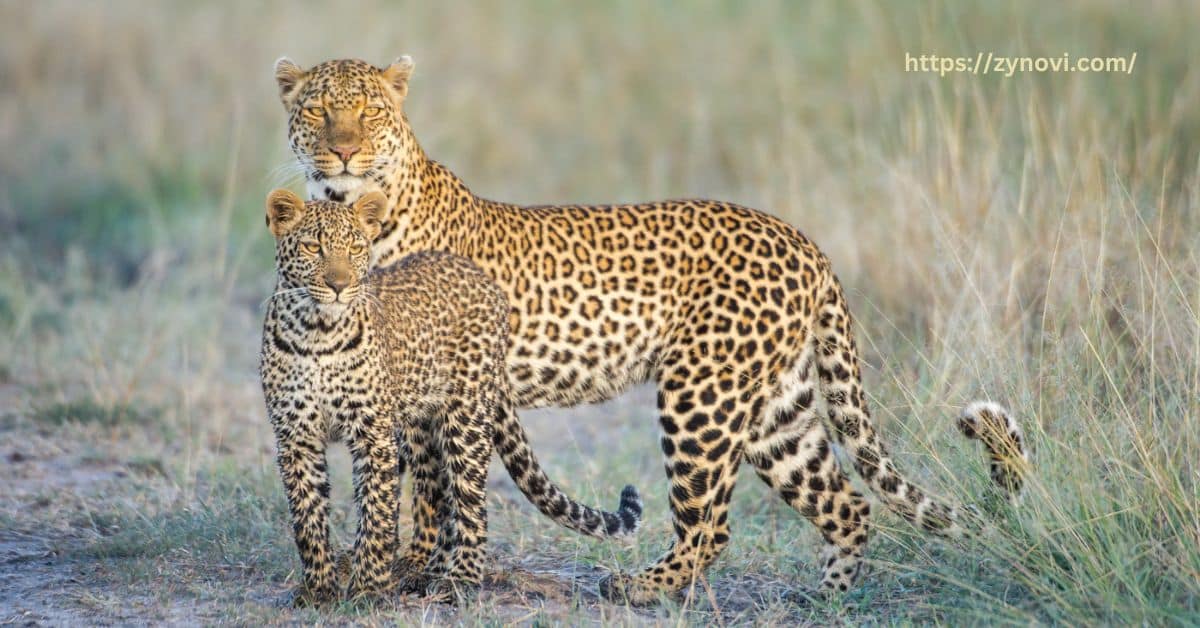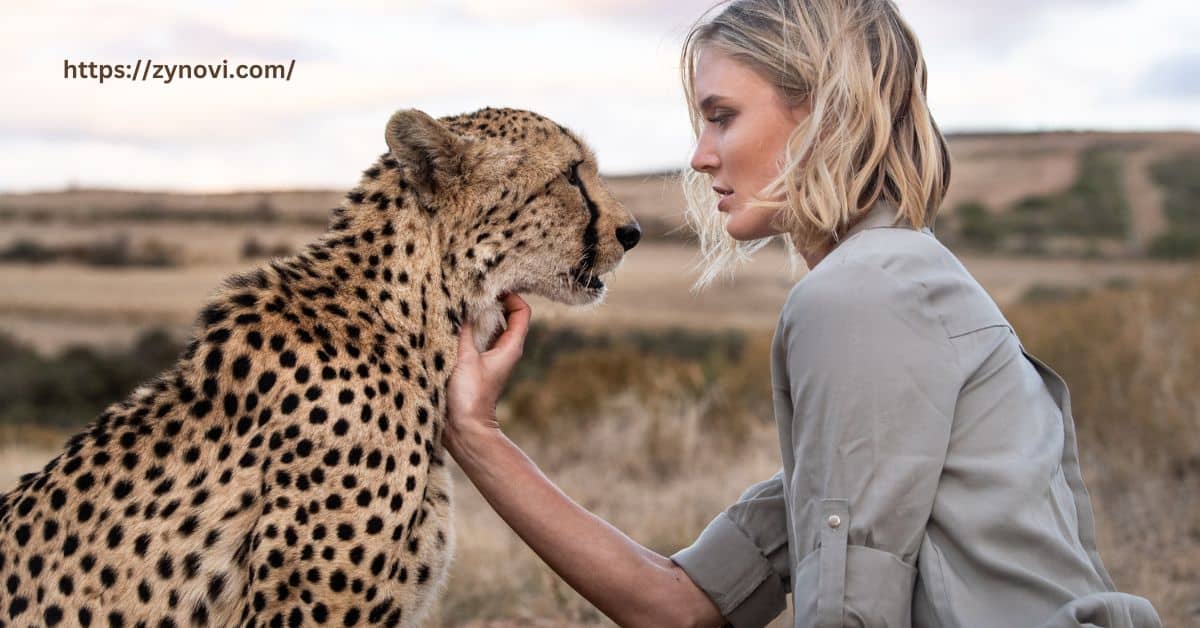Do Cheetahs Attack Humans? Cheetahs rarely attack humans, as they are naturally shy and prefer to avoid contact with people.
It’s a question many wildlife enthusiasts wonder about, especially when encountering these majestic big cats in the wild. With their sleek bodies and lightning-fast speed, it’s easy to assume they could be dangerous. But are they really a threat to humans?
In this article, we’ll find the truth and explore whether they pose a danger to people. Get ready to uncover surprising facts that will shift the way you think about these incredible animals, and learn how to safely coexist with them in the wild. Let’s get started!
Understanding Cheetahs
Cheetahs are one of the most fascinating big cats in the world. Known for their breathtaking speed and sleek aerodynamic body, these magnificent animals captivate wildlife enthusiasts.
Physical Attributes and Unique Traits
Cheetahs possess several unique physical characteristics that set them apart from other big cats such as lions, tigers, and leopards:
| Trait | Description |
|---|---|
| Speed | Cheetahs can reach up to 60 miles per hour in short bursts. |
| Aerodynamic Body | Their slender frame reduces air resistance, making them ideal for high-speed chases. |
| Long, Powerful Legs | Designed for acceleration and agility. |
| Black Tear Marks | These distinctive markings reduce glare and help them focus on prey. |
| Large Nasal Passage | Allows for greater oxygen intake during sprints. |
| Non-Retractable Claws | Provide better grip while running. |
| Specialized Foot Pads | Act like tire treads, improving traction. |
Natural Habitat and Global Spread
Cheetahs primarily inhabit the grasslands and savannas of Sub-Saharan Africa, where they rely on open spaces to reach their incredible speed of up to 60 miles per hour while hunting prey like gazelles and impalas.
Although their numbers have drastically declined, a small and endangered population still exists in Asia, particularly in Iran.
Historically, these big cats roamed vast territories, including Ancient Egypt and Mesopotamia, where they were revered, tamed, and even kept as royal pets for hunting games known as “coursing.
Cheetah Behavior and Hunting Strategies

Social Interaction with Other Animals
Unlike other big cats, cheetahs exhibit solitary behavior. However, males often form male coalitions, small groups that improve their chances of defending territory. Females, on the other hand, are highly independent and only interact with their cubs.
Cheetahs face threats from larger predators such as:
- Lions – Compete for food and may kill cheetahs to eliminate competition.
- Hyenas – Frequently steal cheetah kills.
- Leopards – More dominant in overlapping territories.
Predatory Instincts and Hunting Techniques
Cheetahs rely on a unique hunting strategy that involves stalking their prey and then launching a high-speed chase. They target smaller herbivores such as gazelles and impalas, using their predatory instincts to execute precise kills.
| Hunting Stage | Description |
|---|---|
| Stalking | Cheetahs creep close to their target, minimizing movement. |
| High-Speed Chase | Using fast chases, they sprint towards the prey. |
| Trip and Takedown | A quick swipe to the legs knocks the prey off balance. |
| Suffocation | Cheetahs bite the prey’s throat to ensure a swift kill. |
Human-Cheetah Encounters: Myth vs. Reality
Historical Accounts
Throughout history, cheetahs have shared a unique bond with humans.
- In Ancient Egypt and Mesopotamia, they were highly prized and kept as royal pets by pharaohs and nobility.
- Unlike lions and tigers, which were feared for their raw power, cheetahs were admired for their speed and elegance.
- Their natural avoidance behavior and non-aggressive nature made them easier to tame.
- They were frequently trained for hunting games, particularly coursing, where they helped chase down fast-moving prey like gazelles and impalas.
Documented Cases of Cheetah Attacks on Humans
Despite their predatory instincts, cheetahs rarely attack humans. Verified incidents are extremely rare, but here are some documented cases:
- Captive cheetah attacks: In enclosures, stress, fear, or territorial disputes can occasionally cause aggressive reactions, though fatalities are extremely rare.
- Human provocation: Getting too close, especially to cheetah cubs, can trigger a defensive response, including lunging or growling.
- Starvation-related incidents : Severe prey depletion in certain regions may force cheetahs to take risks, but they still rarely see humans as prey.
Why Cheetahs Rarely Attack Humans

Instinctive Evasion and Survival Tactics
Cheetahs rely on instinctive evasion tactics rather than direct confrontation when faced with danger. Their natural avoidance behavior makes them more likely to flee at high speed than engage in conflict, unlike more aggressive big cats like lions or tigers.
Their lightweight frame and aerodynamic body are built for speed and agility, not combat, reinforcing their tendency to escape rather than fight.
Fear of Cheetahs Towards Humans
Studies on cheetah behavior reveal that they have an inherent fear of humans and typically avoid encounters. Unlike lions and tigers, which may see humans as potential prey under certain circumstances, cheetahs perceive people as a threat rather than food.
This natural avoidance behavior is a survival instinct, as cheetahs are lightweight, non-confrontational animals that rely on speed and evasion rather than brute strength to escape dangerous situations, including human presence.
How Cheetahs Compare to Other Big Cats in Aggression
| Big Cat | Likelihood of Attacking Humans |
|---|---|
| Lion | High – Known for attacking humans in certain regions. |
| Tiger | High – Several reported cases of tiger attacks. |
| Leopard | Medium – Opportunistic attacks occur in some areas. |
| Cheetah | Low – Few documented cases, mostly defensive rather than predatory. |
How to Stay Safe Around Cheetahs
Responsible Wildlife Viewing Practices
When observing cheetahs in the wild, follow these conservation efforts to ensure both human and animal safety:
- Observing from a distance – Always maintain a safe distance when viewing cheetahs in the wild. Approaching too closely can cause stress and disrupt their natural behavior.
- Avoiding sudden movements – Sudden gestures or loud noises may trigger a defensive reaction due to their instinctive evasion tactics. Move slowly and calmly to avoid alarming them.
- Not feeding cheetahs – Feeding can interfere with their unique hunting strategy and create human-wildlife conflict, making cheetahs reliant on people instead of their natural prey.
What to Do (and Not Do) When Encountering a Cheetah

If you find yourself near a cheetah, follow these guidelines:
Certainly! Here’s a more detailed version of your points:
DO:
- Maintain a calm demeanor: Keep your movements slow and steady to avoid drawing attention. Cheetahs can sense nervous energy, so staying calm is crucial in not alarming them.
- Slowly back away if the cheetah notices you: If the cheetah looks directly at you or seems aware of your presence, slowly back away without turning your back on it. This reduces the risk of it feeling threatened.
- Watch for signs of distress: Be mindful of body language like flattened ears, flicking tails, or vocalizations such as chirps, purrs, or hisses. These could indicate the cheetah feels uncomfortable or threatened, and you should proceed with caution.
DON’T:
- Run: Cheetahs are fast runners and, if they perceive you as prey, chasing you could trigger their instinct to sprint after you. Running could make the situation more dangerous.
- Make loud noises: Shouting, clapping, or making sudden noises can startle the cheetah and provoke an unpredictable response. Keep the environment calm to avoid escalating tension.
- Approach cubs: A mother cheetah will fiercely protect her cubs. Never attempt to approach or touch them, as this can provoke an attack and put you in grave danger.
FAQs
Are cheetahs aggressive to humans?
Cheetahs are not naturally aggressive toward humans and typically avoid interactions, preferring to flee if threatened.
Could a human fight a cheetah?
It’s highly dangerous for a human to fight a cheetah, as they are incredibly fast and strong, with sharp claws and teeth.
Has a human been attacked by a cheetah?
While extremely rare, there have been isolated incidents of cheetahs attacking humans, usually in captivity or when provoked.
What to do if a cheetah is chasing you?
Stay calm and avoid running; instead, slowly back away while maintaining eye contact to avoid triggering its predatory instincts.
Conclusion: Do Cheetahs Attack Humans?
Cheetahs are often considered one of the least dangerous big cats when it comes to human-wildlife interactions. Their natural instinct is to avoid humans, and they typically flee rather than fight when faced with potential danger. As a result, attacks on humans are extremely rare.
However, it is still important to respect their space and follow safety precautions to ensure a peaceful coexistence. Cheetahs face significant challenges, including habitat loss, poaching, and human-wildlife conflict. Supporting conservation efforts is vital to ensuring their survival and protecting these magnificent creatures for future generations.










